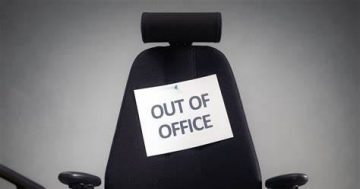John Eades* recalls a long-ago baseball season to bolster his argument that ethical behaviour is more important than simple results in business.
 We’ve all heard the saying ‘the results speak for themselves’, but do they really?
We’ve all heard the saying ‘the results speak for themselves’, but do they really?
I watched a recent documentary, Long Gone Summer, highlighting the infamous 1998 baseball season where Mark McGwire (pictured) broke Roger Maris’s home run record.
If you were McGwire’s baseball manager in ‘98 and looked only at the results, you would give nothing but praise and recognition to McGwire.
We now know McGwire was using performance-enhancing drugs during the season.
McGwire’s reputation was tarnished.
He is proof that leaders who solely reward people based on results are using the wrong formula for long-term success.
When studying what the best leaders do I found a formula they leverage to get consistently high results from themselves and their people.
It’s is called The Route to Results: High standards produce a certain behaviour.
That behaviour, when practiced repeatedly, becomes a habit, and those habits lead to results.
The Route to Results is especially important when it comes to rewards and recognition and ensuring the team gets the results the right way.
Goodhart’s Law states: “When a measure becomes a target, it ceases to be a good measure.”
In a recent video, Jason Feifer, the editor ofEntrepreneur Magazine and host of the Pessimists Archive Podcast, highlighted why Goodhart’s Law should be used properly by leaders.
Feifer highlights exactly why the best leaders shouldn’t reward the results and instead should reward behaviour.
Rewarding behaviour isn’t easy because the vast majority of teams and businesses are run and measured based on their current results.
While this makes sense, it also creates an arbitrary system for leaders to demand results by a certain time.
When leading a remote team, rewarding behaviour becomes even more challenging.
When a leader and a team member are physically around each other, it’s easier to observe and encourage the correct behaviour and habits.
In a remote work setting, the major measurements are outcomes and results.
However, remote work doesn’t exempt people from cutting corners to get short-term results in a way they will cost the team in the long run.
Consider this example: Jeff is a current sales manager.
Since his team now works remotely, instead of just rewarding, recognising, and celebrating when a team member closes a sale, he shares an ‘extra step’ the salesperson took with the entire team.
By doing so, he reinforces the behaviours requires to win the sale versus the sale itself.
If you are in a position of leadership with a remote team, reward, recognise and celebrate the behaviour and habits that lead to results, not the results themselves.
In the final scenes of Long Gone Summer, Mark McGwire said this:
“I believe I was put on this earth to hit home runs, but I also believe I was put on this earth to pass on knowledge.
“Not many people have been in the position to be on the top like I was, but I was also on the bottom.
“I don’t think you can get to the top without scratching the surface of the bottom floor.”
Not only did McGwire admit his use of performance enhancing drugs but now he is passing on knowledge to help us be better performers and leaders.
For that, we should be grateful.
*John Eades is the Chief Executive of LearnLoft a leadership development company. He can be contacted at johneades.com.
This article first appeared on John’s LearnLoft blog.











